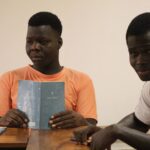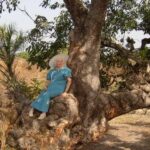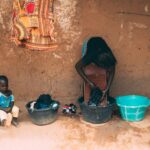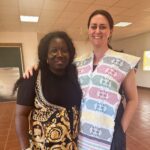What Holistic Ministry Looks Like: How to Share the Good News While Serving the Poor
In June, Pope Leo XIV shared a message on the 2025 World Day of the Poor that captured the twin callings of holistic ministry for how Christians (whether Catholic or Protestant) should serve the poor.
“The worst discrimination which the poor suffer is the lack of spiritual care,” he said, stressing the need to share God’s blessing and truths with the poor. At the same time, Pope Leo said that meeting the physical needs of the poor is a calling for every Christian: “Helping the poor is a matter of justice before a question of charity.”
As a Christian nonprofit working in one of the world’s smallest and poorest countries, we’ve had to figure out a way to do both: serve the poor and share the Good News of Jesus Christ. And it’s not always easy. How much time and energy do you devote to evangelism and discipleship versus programs that serve physical needs? Does your model limit your ability to receive critical grant funding, and if so, what changes should you make without compromising your core mission? Is everyone who benefits from your program required to sit through a presentation of the Gospel?
While we still don’t have all the answers, here’s the model we’ve developed so far.
A Focus on Neighbors Sharing the Good News with Neighbors
Our vision for holistic ministry is for WAVS teachers to invest in the skills development of their students while also sharing the message of hope – how Jesus changes everything: how we live, work, and love others.
To carry out this vision, we’ve built strong relationships with local churches and recruit most of our employees through the church community. Teachers from these local churches then have the opportunity to build authentic relationships with their students and share the Gospel message during classroom devotionals.
Classroom devotionals are held during the first 10–15 minutes of every 2-hour class, every day. We have developed a series of lesson plans that help our teachers guide their students through the story of the Bible. Every 4-month term has its own lesson plan to follow. We start students off with a 60-day overview of the story of the Bible and God’s plan for their lives.
“Devotionals are important because, as part of the global Church, we need to teach our students about God — not just focus on the social and professional skills we’re equipping them with,” said Matheus N’Baqué, an administrator at the WAVS vocational school in Bissau, the capital of Guinea-Bissau.
Putting God’s Word in Our Students’ Hands
Since 2018, WAVS has distributed more than 1,000 Bibles in the local Guinea-Bissau Creole language to students and graduates. We use the Bibles in several ways:
- Creole Bibles in every classroom, which students use during daily devotionals
- A Creole Bible awarded to each graduate on graduation day
- Creole Bibles for sale to students at or below actual cost
This initiative allows us to integrate both spiritual formation and biblical justice into the daily rhythm of our vocational training.
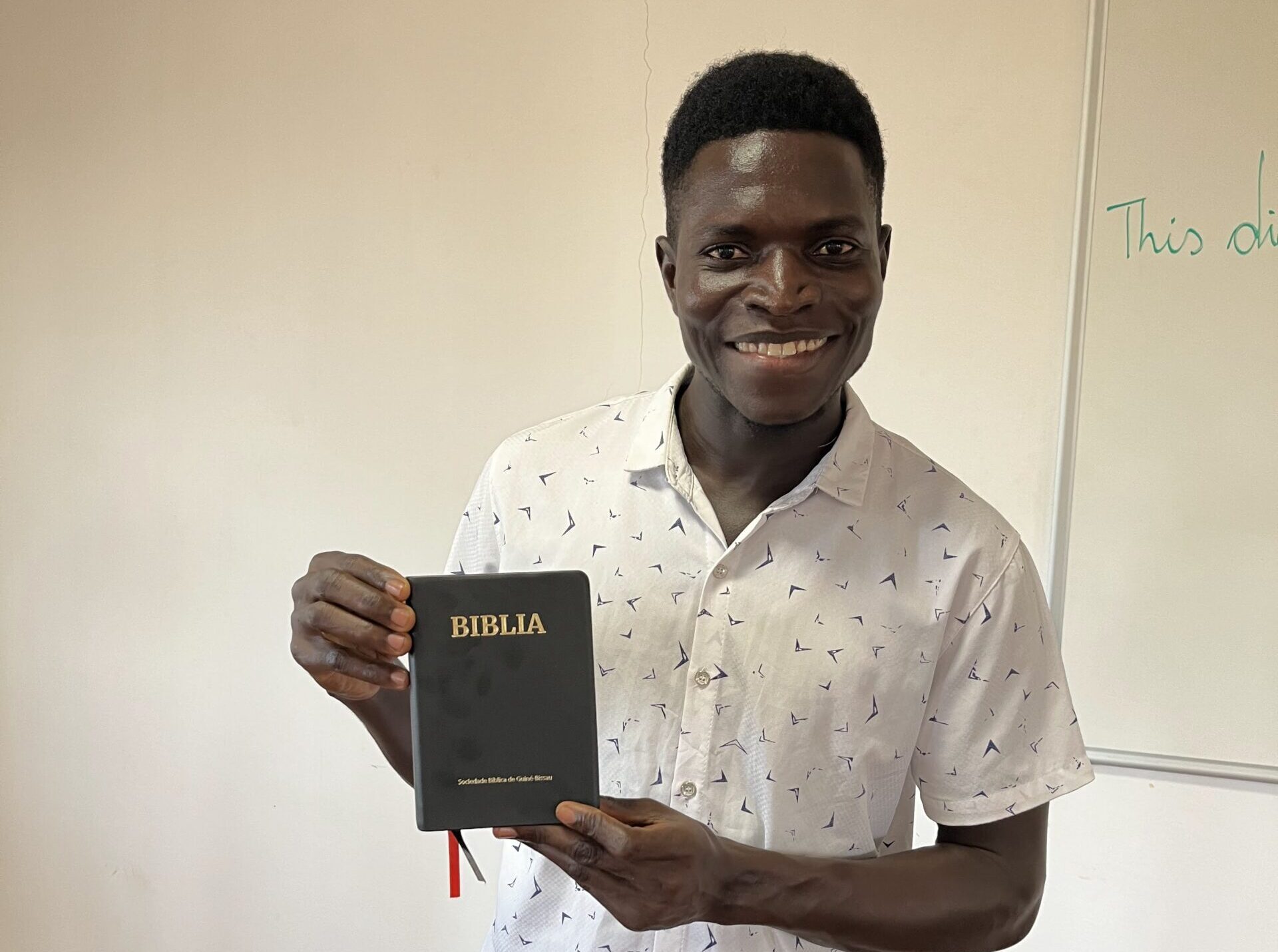
Mario, one of our English teachers, with a copy of a Creole Bible available to students so they can read God’s Word in their own language.
Measuring Results: Spiritual Impact Alongside Job Skills
Just as we measure our impact on students’ economic and employment outcomes, we also measure the impact we have had on their spiritual lives and relationship with God.
To do this, we include questions about the classroom devotionals when we conduct our student surveys (which we issue to each student at the end of every four-month term), as well as in our graduate surveys (which we conduct via in-person interviews with our graduates about one year after they graduate).
The results have been very encouraging!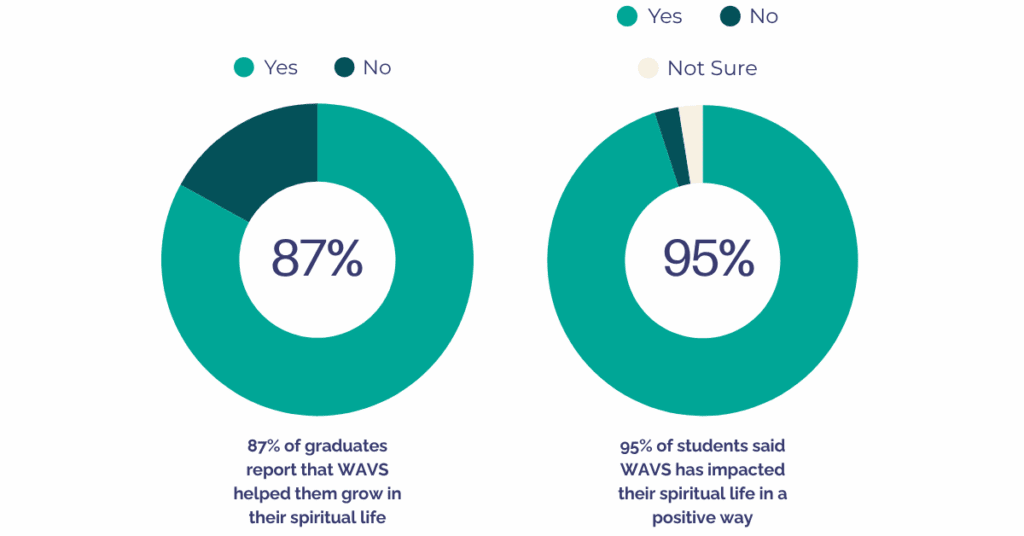
Go Deeper with Our 7-Day Devotional
Download our free Approaching Poverty devotional — a 7-day journey that explores why poverty exists, why we should respond, and how Jesus calls us to act.
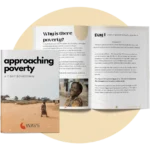
Get the [free] Approaching Poverty 7-Day Devotional
This 7-day devotional will walk you through understanding why poverty exists, why we should help, and how we should help.
Each day will include scripture, a written reflection, and a mixture of reflection questions or connecting stories from the ground in Guinea-Bissau.
"*" indicates required fields
Real Stories of Transformation
As a result of the devotionals and relationships students have built with their teachers, several students (like Dalton) have seen their lives transformed dramatically.
“The devotionals had a positive impact on me. Now I know that anywhere I go, God will take care of me and I will be victorious.” — Ronaldo Pirana, Computer Literacy graduate
“I feel good about the devotionals that we did. Before I came [to WAVS], I didn’t take time to read the Bible and only sometimes would I go to church. But now, I take the time to read my Bible and attend church.”— Vanov Lopes Da Cunha, Welding graduate

Want to Be Part of the Mission?
Through One Student, you can help sponsor the tuition of students in Guinea-Bissau, allowing them to receive job skills training and daily exposure to the Good News of Jesus.
Learn how you can be part of this holistic ministry: Sponsor a student today

